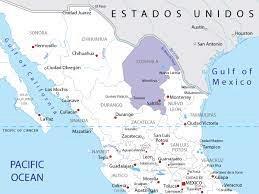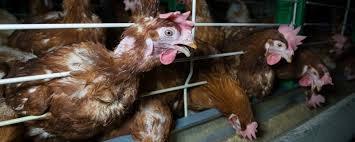 The National Service for Agrifood, Health, Safety and Quality (SENASICA) of Mexico has announced the presence of H7N3 highly pathogenic avian influenza in the state of Coahuila and an adjoining portion of the state of Durango. In cooperation with the General Directorate of Animal Health within the joint United States-Mexico Commission for the Prevention of Foot-and-Mouth Disease and Other Exotic Animal Diseases, appropriate preventive measures have been taken. These include quarantine and disposal of affected flocks, restrictions on movement of live birds, products and manure and intensive surveillance following the guidelines of the World Organization for Animal Health. The Index Farm in Coahuila comprised an egg-production farm of 230,000 hens in the municipality of Ramos Arizpe. The infection has also been diagnosed in two farms in the Comarca Lagunera region of Coahuila and one farm in Gomez Palacio in Durango state.
The National Service for Agrifood, Health, Safety and Quality (SENASICA) of Mexico has announced the presence of H7N3 highly pathogenic avian influenza in the state of Coahuila and an adjoining portion of the state of Durango. In cooperation with the General Directorate of Animal Health within the joint United States-Mexico Commission for the Prevention of Foot-and-Mouth Disease and Other Exotic Animal Diseases, appropriate preventive measures have been taken. These include quarantine and disposal of affected flocks, restrictions on movement of live birds, products and manure and intensive surveillance following the guidelines of the World Organization for Animal Health. The Index Farm in Coahuila comprised an egg-production farm of 230,000 hens in the municipality of Ramos Arizpe. The infection has also been diagnosed in two farms in the Comarca Lagunera region of Coahuila and one farm in Gomez Palacio in Durango state.

Coahuila has 102 registered broiler breeder farms and approximately 270 broiler grow-out farms. Many clustered in the Lagunera region. In previous years, authorities in Mexico imposed ring vaccination of affected areas using inactivated oil emulsions vaccines to limit dissemination of virus. Spread of infection is attributed to deficiencies in biosecurity, mainly due to ineffective structural components of biosecurity and a lack of application of operational biosecurity.